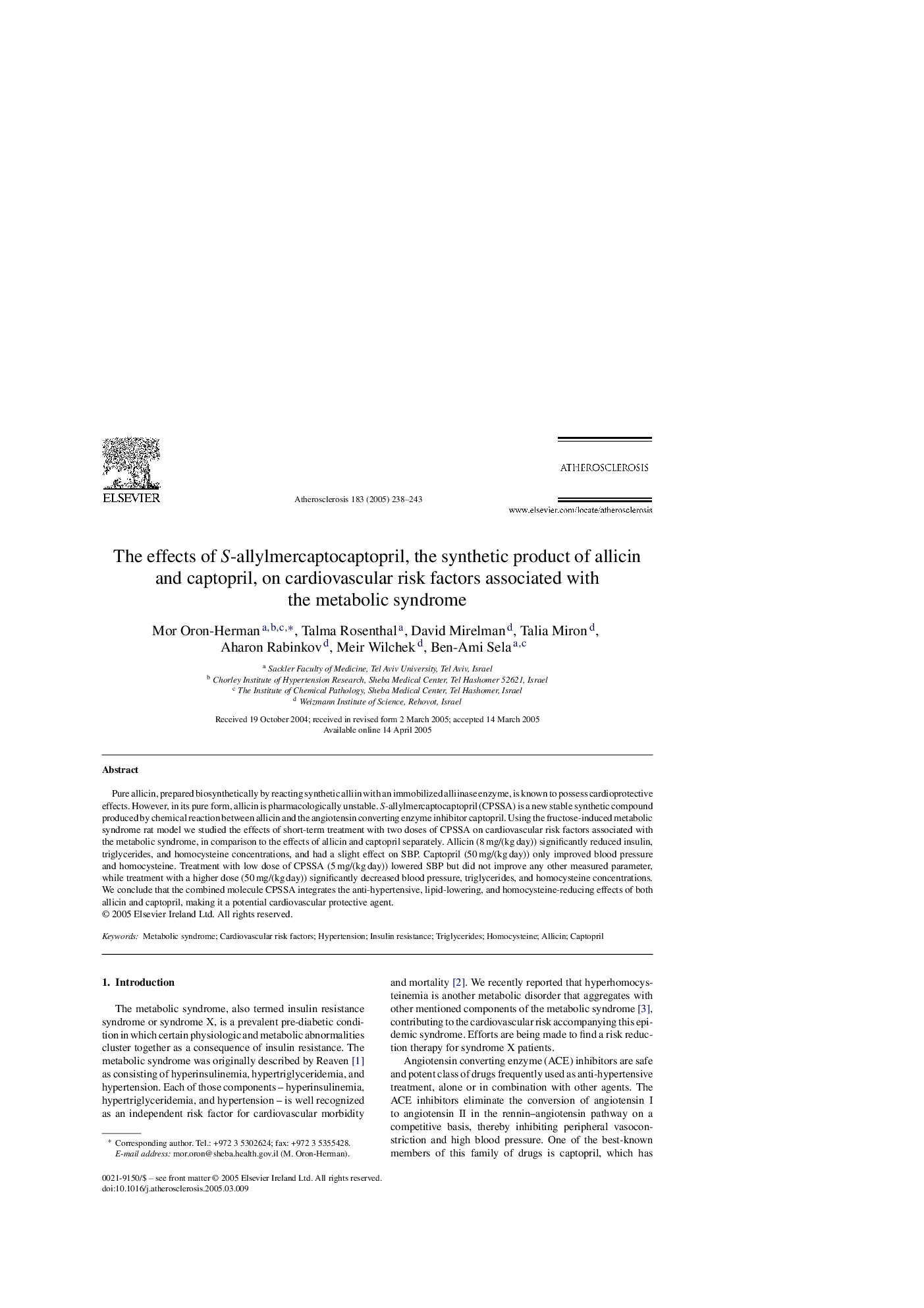| Article ID | Journal | Published Year | Pages | File Type |
|---|---|---|---|---|
| 9157626 | Atherosclerosis | 2005 | 6 Pages |
Abstract
Pure allicin, prepared biosynthetically by reacting synthetic alliin with an immobilized alliinase enzyme, is known to possess cardioprotective effects. However, in its pure form, allicin is pharmacologically unstable. S-allylmercaptocaptopril (CPSSA) is a new stable synthetic compound produced by chemical reaction between allicin and the angiotensin converting enzyme inhibitor captopril. Using the fructose-induced metabolic syndrome rat model we studied the effects of short-term treatment with two doses of CPSSA on cardiovascular risk factors associated with the metabolic syndrome, in comparison to the effects of allicin and captopril separately. Allicin (8 mg/(kg day)) significantly reduced insulin, triglycerides, and homocysteine concentrations, and had a slight effect on SBP. Captopril (50 mg/(kg day)) only improved blood pressure and homocysteine. Treatment with low dose of CPSSA (5 mg/(kg day)) lowered SBP but did not improve any other measured parameter, while treatment with a higher dose (50 mg/(kg day)) significantly decreased blood pressure, triglycerides, and homocysteine concentrations. We conclude that the combined molecule CPSSA integrates the anti-hypertensive, lipid-lowering, and homocysteine-reducing effects of both allicin and captopril, making it a potential cardiovascular protective agent.
Keywords
Related Topics
Health Sciences
Medicine and Dentistry
Cardiology and Cardiovascular Medicine
Authors
Mor Oron-Herman, Talma Rosenthal, David Mirelman, Talia Miron, Aharon Rabinkov, Meir Wilchek, Ben-Ami Sela,
